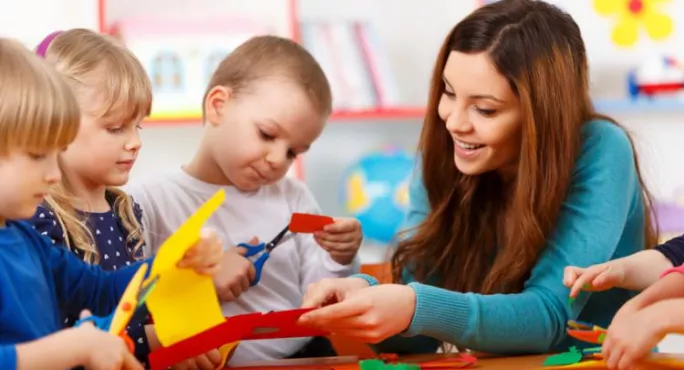
- Home
- ‘Year 1 should be like EYFS, not vice versa’
‘Year 1 should be like EYFS, not vice versa’

A key component of any phase of a child’s education is preparing them for the next stage, with an eventual goal of preparing them for the big wide world of work. Of course, this isn’t the only purpose of education - there are many immediate benefits, too. However, we try to ensure that Year 6 children are secondary-ready, we prepare our university-bound sixth formers for lectures and self-directed study and we want those leaving Reception to be “school-ready”.
Last year’s Ofsted Bold Beginnings report left a sour taste in the mouths of many an early years practitioner, and the current review of the Early Years Goals could be set to do the same. What both seem to be advocating is a formalisation in the education of the nation’s three- and four-year-olds. Civitas, a think tank involved in the review, has the signing of Magna Carta and UK politics alongside more regular early years activities on their core knowledge curriculum for Reception. Ruth Miskin Training, a company also advising on the review, suggests that early years settings should have enough tables for a whole class to sit at simultaneously.
But what if the school readiness that we work towards in the early years is what needs to change? What if current early years practice is as it should be - where, according to the DfE, ”Your child will mostly be taught through games and play’”- and key stage 1 teaching is unnecessarily formalised? Of course, year one and two teachers feel they have little choice but to formalise teaching because the phonics check and KS1 assessments exist, but there are schools out there who apply early years philosophies to KS1 teaching and learning who still do very well in statutory assessments. Where current early years practice, based on an understanding of child development, is of a good quality, should it need to become more formal?
Most early years practitioners would agree that good teaching and learning in nurseries, Reception classes, childminders’ groups and playgroups involves child-led learning as well as adult-led or adult-initiated learning. Even the most play-based of settings will still feature episodes of direct input from the adults in the class. There is perhaps a misunderstanding over how teaching and learning are monitored and managed by adults in a play-based setting. Early years pedagogy does not do away with knowledge, nor does it focus solely on skills, or only follow the children’s interests - it is much more complicated than that.
Does Year 1 need to be so formal?
Good early years practitioners carry an entire curriculum in their heads, always looking for teaching opportunities in addition to those they’ve planned; always assessing children’s needs and adjusting provision. If it seems to anyone that early years provision is unsubstantial then either they are not skilled enough to see what is going on, or the provision needs to be improved - it may not need formalising. Formalising early years education might seem to be an easy way to improve outcomes, but in the long term this narrowed focus could potentially lead to even further issues, such as more mental health problems in our young people.
Perhaps a question we need to ask is are primary schools ready for children leaving the early years? Does Year 1, and even the year groups beyond that, need to be so formal? Does everything have to be done sitting at tables? Would some reflection on the drivers for current primary pedagogy reveal that we teach the way we do because of the tests? If we started over, looking instead to research about child development and cognitive science, would we devise a different, still rigorous, way of teaching, one which caters better to the whole child rather than focusing more on the academic side of things?
Young children can be trained to sit still for extended periods of time, working quietly on something - actually they don’t need to be trained, I’ve seen plenty do this of their own volition - but is this a good proxy for learning? Maybe children in the early years can understand the Magna Carta at such an early age, but should they need to? There are all sorts of things we can get children to do, but are all of them necessary? We can get children to pass the phonics check (and sometimes still not be great at reading); we can get children to meet all the criteria for working at the expected standard at the end of Year 6 (but still produce writing that sounds formulaic) - but are these the right things? Is all of this what is best for the children? Just because we can, does that mean that we should?
Perhaps we need ask not how we can get children school ready, but how we can get school ready for the children?
Aidan Severs is an assistant vice-principal at a primary school in the North of England
Register with Tes and you can read five free articles every month, plus you'll have access to our range of award-winning newsletters.
Keep reading for just £4.90 per month
You've reached your limit of free articles this month. Subscribe for £4.90 per month for three months and get:
- Unlimited access to all Tes magazine content
- Exclusive subscriber-only stories
- Award-winning email newsletters
You've reached your limit of free articles this month. Subscribe for £4.90 per month for three months and get:
- Unlimited access to all Tes magazine content
- Exclusive subscriber-only stories
- Award-winning email newsletters



